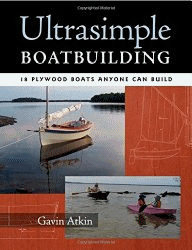Huwebes, Abril 1, 2010
Passage to India with the World Wide Web
 It is about 27 years since we first signed up with an agent to represent us in a foreign country. We were in South Africa and that agent was Graham Shanon's Coast Yacht Design in Canada. That long ago, all written/sketched correspondence was exchanged by snailmail letter post, even before the advent of faxes to speed up our lives. Letters took 2-3 weeks each way by airmail between South Africa and USA. Builders had to think through problems for themselves or plan well ahead because a question would not receive a reply for 4-6 weeks.
It is about 27 years since we first signed up with an agent to represent us in a foreign country. We were in South Africa and that agent was Graham Shanon's Coast Yacht Design in Canada. That long ago, all written/sketched correspondence was exchanged by snailmail letter post, even before the advent of faxes to speed up our lives. Letters took 2-3 weeks each way by airmail between South Africa and USA. Builders had to think through problems for themselves or plan well ahead because a question would not receive a reply for 4-6 weeks.The fax initiated the death of the leisurely pace of our lives forever but it took years for the mindset to change. Urgent issues were dealt with by fax and telephone but all else went the snailmail route as before.
Drawings were all done by hand with pencil or ink on velum or plastic film. The eraser was as much a creative tool as was the pencil. If I got the layout of a drawing wrong I had to erase it and redraw, start again from the beginning or tape a piece of velum to an edge of the drawing to adjust the position of my work on the sheet. Plans were printed by hand, one at a time, by the dyeline ammonia process. They had to be well cared for and builders had to protect them from light or the information disappeared from the paper.
Now, working in CAD, I just grab whatever I want to move with my computer mouse then move it to where I want it on the drawing, or I can change the size of the drawing in an instant. CAD is still just a tool, an electronic version of pencil and eraser, but it brought with it so many conveniences (and as many frustrations). CAD and computers offer countless features to speed up the design process but, when things go wrong electronically, they take back all the time that they have saved us, with interest. When the design is done, we print with permanent ink onto 50m long rolls of paper or Mylar, with one computer spewing prints out of two plotters and another printer simultaneoulsy.
Now we have instantaneous electronic communication in the form of email, Instant Messaging, Skype etc, which were supposed to make life easier and give us more time. Instead they have done the opposite. Sometimes if a question is not answered within 24 hours a reminder arrives in the inbox. Unfortunately, it is easier to send a question by email than to look for information that is already in our hands. We are all guilty of this when we have a problem. It makes life easier for he who has the problem but wastes the time of he who has to tell us where to look for the information that we already have at our fingertips.
Things really have changed. We live in another country and we are in daily contact with our builders worldwide. We have boats sailing or being built in 78 countries, on all continents and in all corners of the world. The Internet has allowed us to reach people whom and where I would never have dreamed possible only 20 years ago. As kids, we understood Mongolia to be an even more out of the way place than Timbuktu. Now, we have boats as large as 43ft being built to the North of Mongolia, in Siberia.
Much of this is also due to the network of wonderful agents that we have managed to develop over the years since Graham Shanon contacted me to ask if he could be my agent. These people provide the personal contact for us with our customers who are not comfortable with long-distance purchases or who do not have access to the Internet. They have proven to be particularly valuable in countries where most people cannot speak my language and I cannot speak theirs.
Today we have spread a bit further, by signing with a new agent who will represent us in India. Sailing and boating are rapidly growing activities in India and it will be good for us to be represented there. Pelican Yachts is owned by Sagar Kudale and Gaurav Shinde. Based in Mumbai, where they are active sailors and also teach sailing, they should be well positioned to sell our designs to builders in India. They have also taken on the rights to cut kits for our plywood designs, which they will be able to sell to amateur and professional builders.
We look forward to a long and mutually rewarding relationship with Pelican Yachts.
To make contact with Pelican Yachts or any of our other 15 agents, go to our contact page at http://dixdesign.com/email.htm .
Mag-subscribe sa:
I-post ang Mga Komento (Atom)
Walang komento:
Mag-post ng isang Komento